Quid pro quo? No.
 Wednesday, October 29, 2014 at 03:44PM
Wednesday, October 29, 2014 at 03:44PM 
Because I did this, you must now do that.
I've always been there for you. Therefore you owe me.
Hey you! Don't you see what I did there? Your turn.
Right?
Wrong.
I had to chuckle at an article I read a week or so ago. It told the sad tale of a man who, having gone out of his way not once, not twice, but many times to contribute to the coffers of an elderly female panhandler, discovered that she had been -- ahem -- misrepresenting her financial situation.
Said female held herself out as a widow who could not afford food. I'm guessing there was hand-lettered signage involved. Apparently she occupied the same space on street or sidewalk regularly, petitioning passers-by for cash and coin.
The subject young man, moved by the old woman's plight, had over time favored her with considerable monetary support, even going out of his way to do so.
Until the day, happening by her customary begging spot, he saw her easing her aged bones behind the wheel of a late-model sports car.
Red.
And in modern-day parlance, he lost it.
As in, he flipped out on the lady, publicly. Cursing. Screaming. Calling her a dirty liar. Pointing at his own car, which he said was not as nice as hers. Reminding her over and over of the dollar amounts he'd sacrificed to her bogus cause. Claiming he'd denied himself food so that she could eat.
Naturally the whole scene was captured on the phone of another aggrieved Good Samaritan, who promptly uploaded the profane diatribe.
You guessed it: the vid went viral.
Righteous indignation is very popular these days. Outrage ensued.
But wait a minute.
If I make a bad investment, assuming I made it of my own volition, I have no one to blame but myself.
There's a Latin expression for it: Caveat emptor. Buyer beware.
Back to our benevolent indignant young man, noisily accosting the old woman as she cowered in the driver's seat of the red car, accusing her of having snookered him and placing all the blame for his present anguish squarely on her sagging shoulders.
Having willingly contributed to her prosperity, he was offended to learn that the elderly woman had an automobile at her disposal. Adding insult to injury, the car was nicer than the one he drove.
I'm sorry sir, but when adding her lack of integrity to your lack of judgment, what we have is a wash.
That zero-sum-game thing rears its ugly head.
Speaking of honesty, when it comes to giving, be up-front enough to admit it when, instead of charity, what you're really practicing is enlightened self-interest.
In other words, when you gave, you expected something in return. Meaning, it wasn't really a gift. It was a tacit bargain you hoped to strike with the fortunate recipient of your largesse.
More Latin: Quid pro quo. Something for something.
In the case at hand, it is clear to me that in return for his money, the young angry man expected the beggar to remain (or at least actually be) poor and needy.
Why? For her sake? Or because that scenario enabled him to go on congratulating himself for being the very soul of kindness (or at least not a sucker)?
(By the way, I get it. I realize the woman is wrong for what she did, if in fact she's guilty. Lying is bad; don't do it. But also don't miss my point.)
Because see, here's another fact of life, in straight English this time: In the same way that giving is voluntary, no matter how much you give, or how often, nobody owes you anything.
And nobody owes me anything.
Oh, there are things we hope to receive in return for investments we make. For good deeds, or in consideration of offices we hold, or owing to familial ties, or in light of past (or present) declarations of devotion, we hope to reap some form of reward.
We enjoy being recognized for the good we do. We like receiving presents -- or other benefits -- from those of whom we have been thoughtful. It's human and perfectly natural to crave love from those we love. And yes, we hope for honesty and forthrightness in our dealings with others, whether casual or deliberate.
But there are no guarantees. Due to the free will of every person, there's no promise, explicit or implicit, that our acts of kindness, whether random or planned, will garner us the desired result, or will rack up for us the hoped-for number of brownie points.
So if I'm going to give, I must really give. As in, give, then let go. What the recipient does with my gift is none of my business. Try as you or I might, we won't succeed in holding anyone to our arbitrary self-styled standard.
Because you may as well go outside tomorrow morning and attempt to hold back the dawn, to keep the babies from crying and the dogs from barking and the birds from singing for the space of a day, as to go about trying to make someone love you, or respect you, or admire your actions, or feel gratitude towards you.
These gifts can only be freely given. That's what makes them so precious.
And when/if we find out we've truly been taken advantage of? We can waste our time being angry with the taker, but it's best to admit we made a bad investment and move on to the next opportunity. Opportunities to give are, after all, limitless.
Either way, it's a choice we're free to make.
And that is all for now.

 Jennifer |
Jennifer |  6 Comments |
6 Comments | 

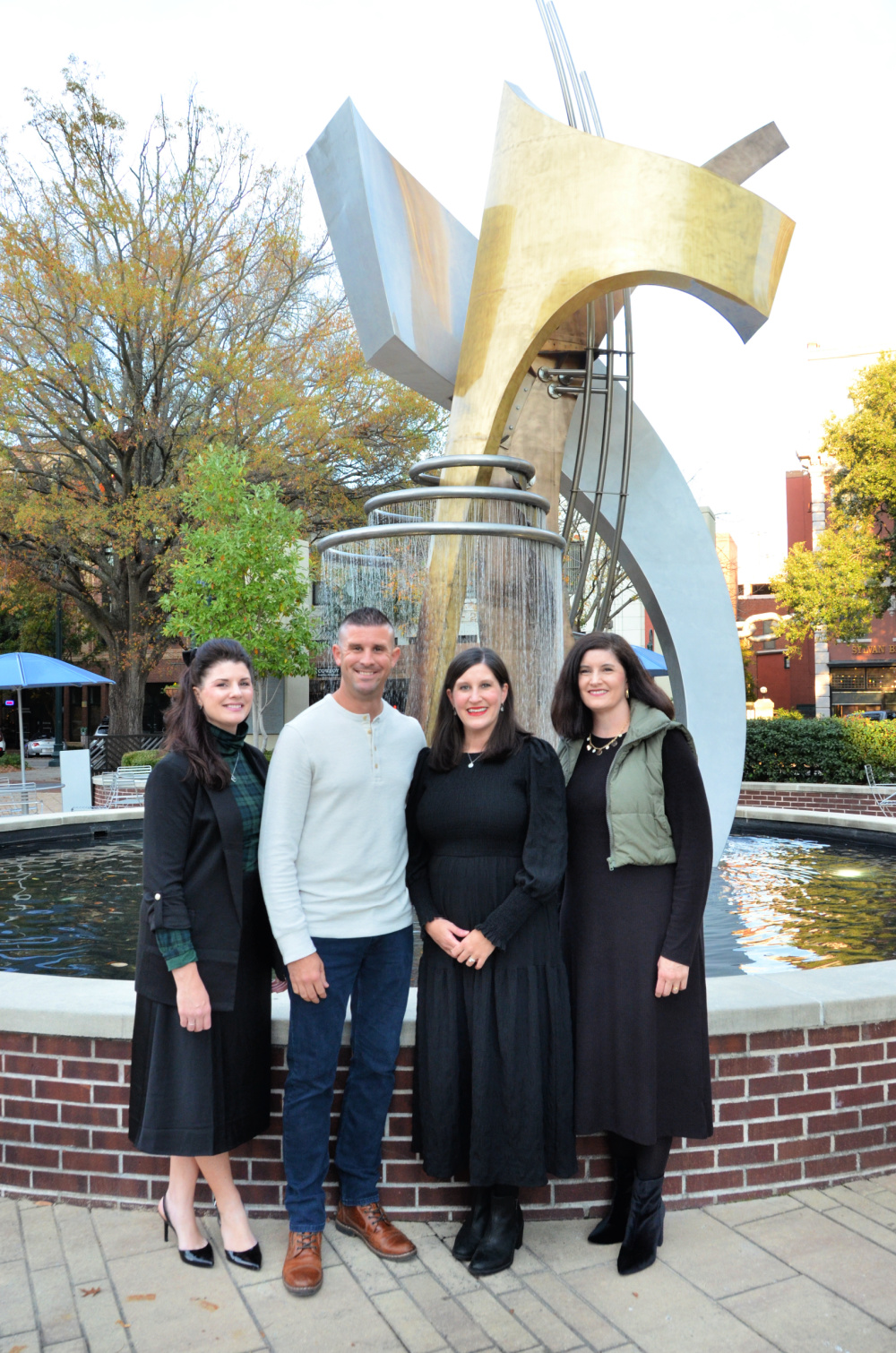

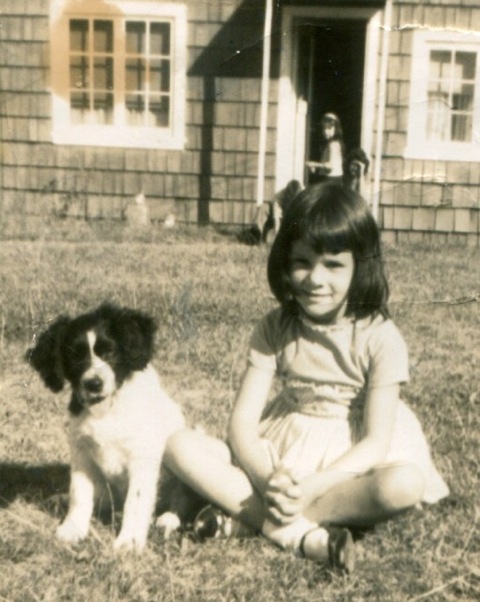















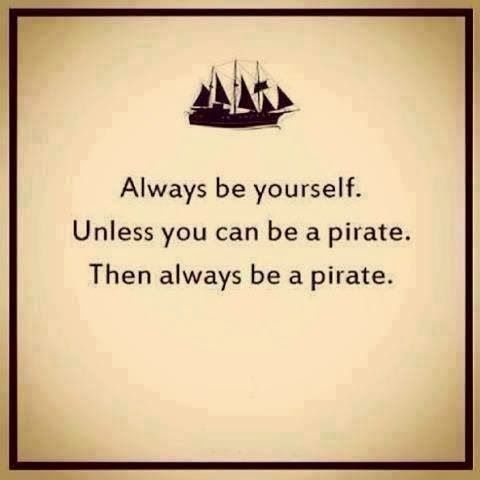


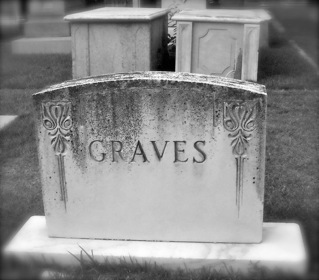

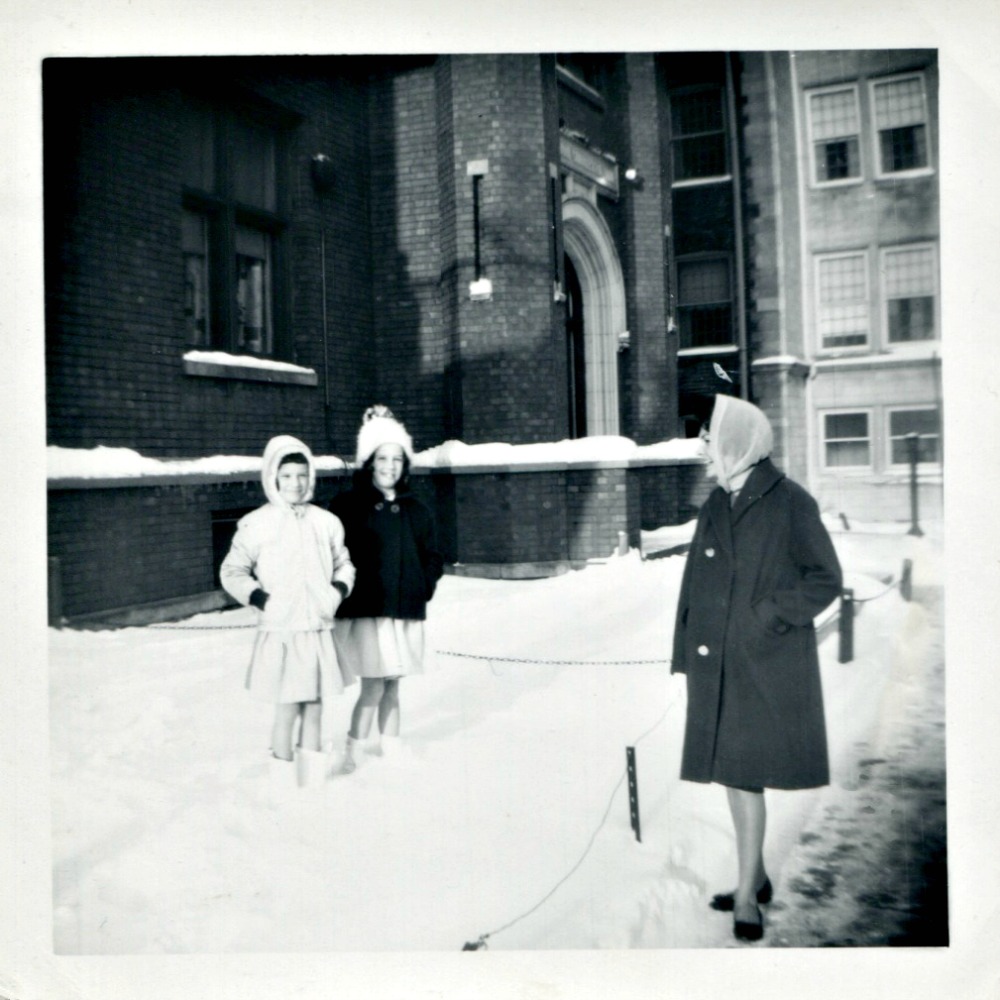

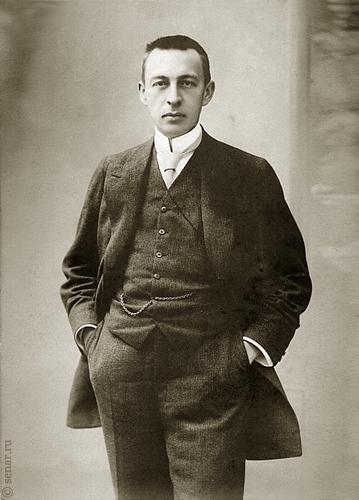
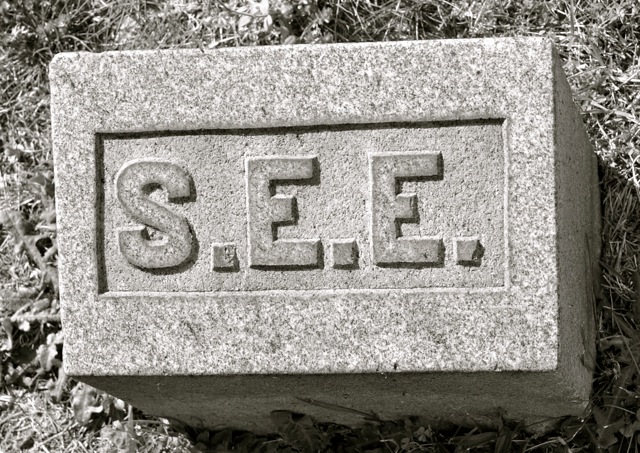
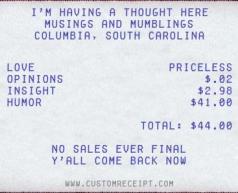
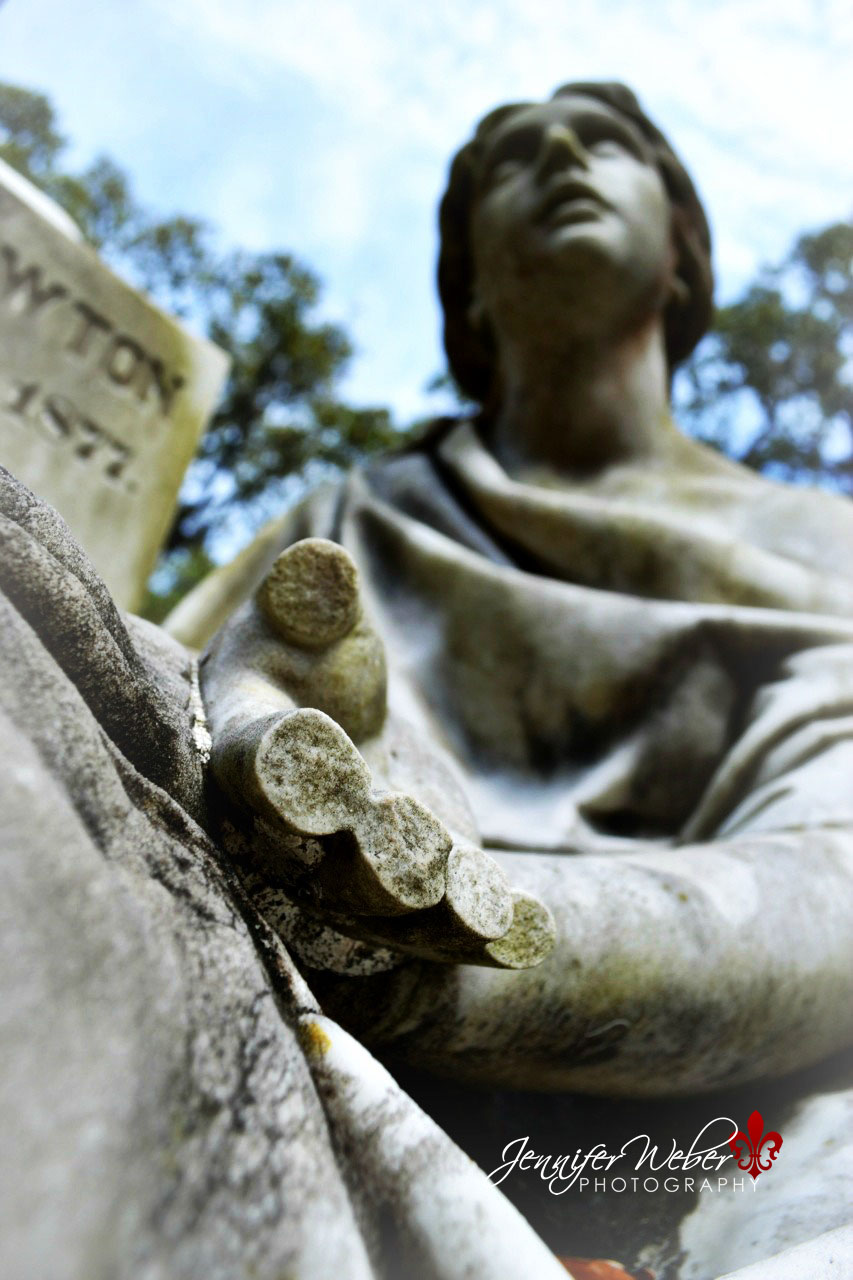


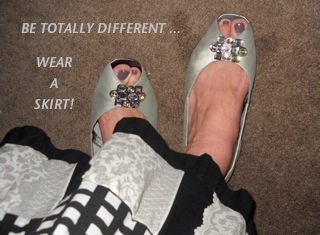





























































![Hold Back the Dawn [DVD] Charles Boyer; Olivia de Havilland; Paulette Goddard](http://ecx.images-amazon.com/images/I/41AkExBJQsL._SL75_.jpg)




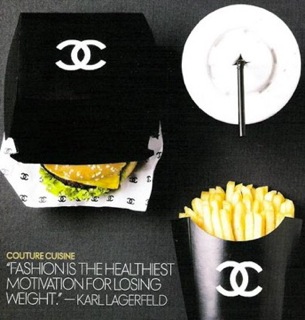

Reader Comments (6)
Jenny, This post strikes a philosophical chord with me. Since I was very young, I have tried to keep my good deeds anonymous. I will never put my name in a list of givers, for instance. If I help someone in any way, from my heart to theirs - they owe me nothing (not even a thank you). I have followed this practice (as has my husband) for many, many years. We sometimes remind ourselves - give freely - expect no returns. My close group of friends has established a practice of giving to charities instead of to each other. I am unable to tell about my giving, however. Finally, last year I wrote to thank them all and tried to explain that I wouldn't/couldn't divulge if and when I was charitable. I don't think I'm better or worse than anyone else for this stance - it's just what pleases me and how I am most comfortable. There is always the question of if we would do the right thing, the charitable thing if nobody was watching and if nobody would know. Perhaps something larger than ourselves DOES know - and knows the spirit in which giving is undertaken? Now that I've written a book as a comment, I wonder if I should have remained quiet.
I saw that clip too and never And they are good points!
I've been approached by a few people panhandling, and I hate saying no in case they really are in need, but I would rather give to someone I know needs money than a scammer.
@Barb ... No, you shouldn't have remained quiet because you make an excellent point. I was saying the same thing (or something very similar) to my daughter as I mulled over this concept in preparation for writing down what I thought about it. We have reached a point in society where many expect others to pitch in and pay for their expenses, but at the same time the givers seem to think they're OWED something for having done so ... except, they're not. By the same token, yes, we should give as God impresses upon us to give. But having given, we need to be content with the fact that only we, the recipient, and God know the details. And that is enough. If it isn't enough for us, we need to examine not the gratitude those upon whom we bestow our kindnesses, but our own motives. Thanks for weighing in! xoxo
@Mari ... I hear you. TG is accosted regularly as he goes about his day, and he is always willing to feed someone. ALWAYS. This is in addition to his already-generous nature which never keeps score. But often the panhandlers don't want food; they just want money. That's not going to happen, at least not from our end! xoxo
Well said and equally well written my friend...I fully agree with your sentiments about this!! 👌
G.
This reminds me of one time when a man walked up to the car where Mom was sitting waiting for me in the store. He asked for money, and she told him she would buy him some food when I got back (there was a burger king right there). As I walked out of the store, I could see that man angrily getting back on his bicycle; he wasn't having it. Nope. Just money. After that, I never left her in the car without me. I agree that we don't need to "broadcast" our giving; it's totally between us and God. Instead of Christmas gifts to the grown-ups in our family, I believer we'd all feel better about ourselves to give what we can to help others. After all, we have all we need. :)
@Sally ... my husband has had that identical experience. One panhandler approached him at a gas station and asked to be TAKEN to a specific restaurant. When TG said no, he'd buy him something right there where they were, the beggar declined. Later though, TG saw the man hanging out at the restaurant he'd asked to be taken to! So I guess he found a ride. xoxo